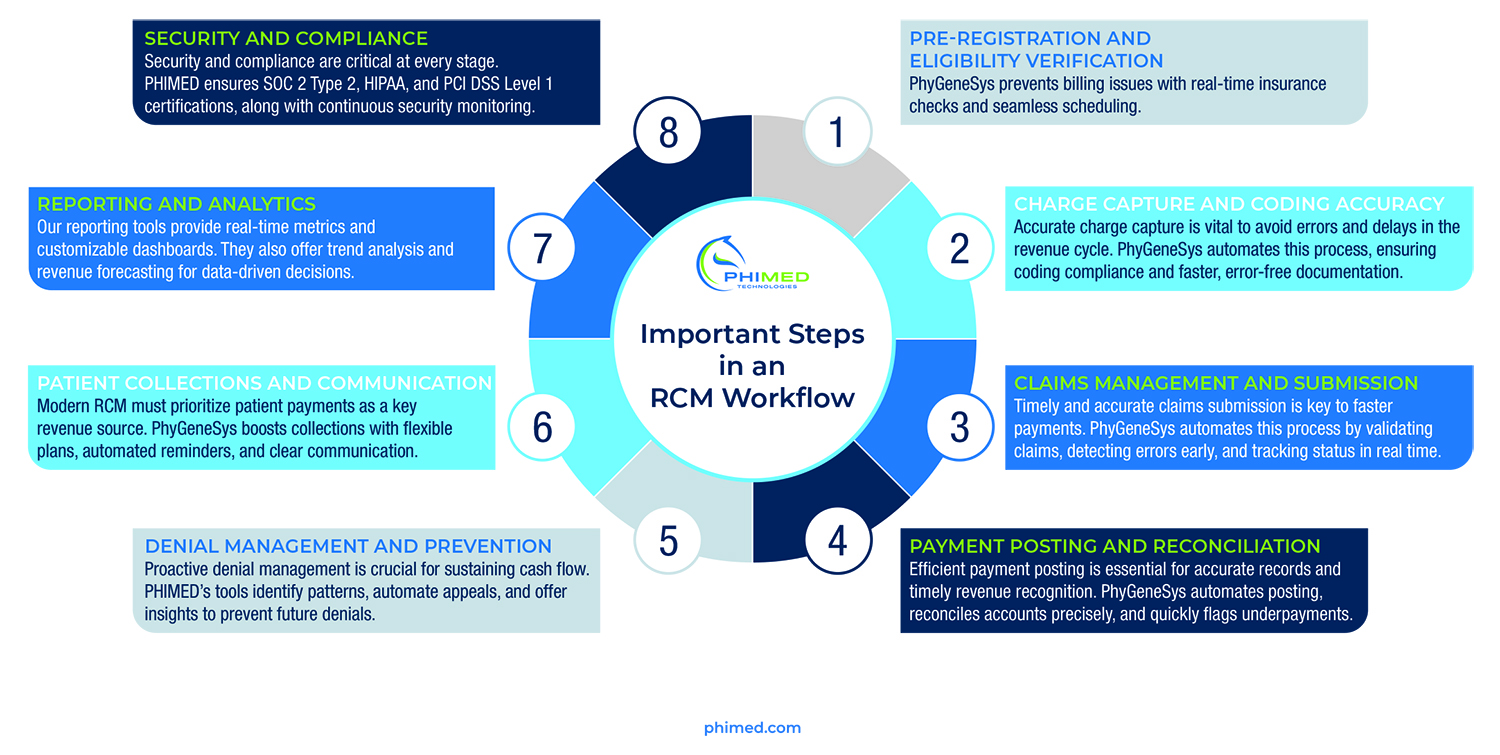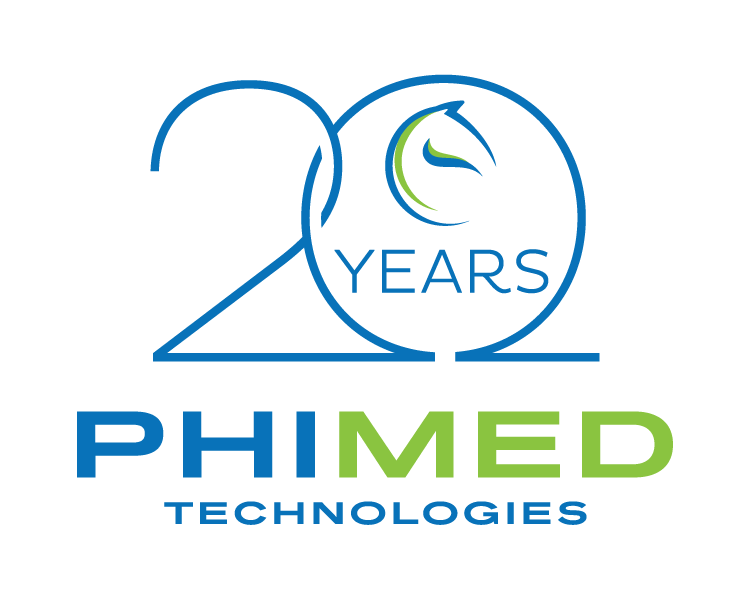In today’s complex healthcare landscape, maintaining an efficient Revenue Cycle Management (RCM) workflow is crucial for healthcare providers’ financial health. Understanding and optimizing these essential steps can mean the difference between thriving and merely surviving in the competitive healthcare sector.
In this article, we’ll dive into essential RCM workflow processes and what to expect at each step.
Why a RCM Workflow?
Revenue Cycle Management software integrates seamlessly with electronic health records (EHR) systems to maximize the automation of manual tasks, ensuring reporting, data, and patient information are up-to-date and accurate. By streamlining RCM workflows, data entry and billing discrepancies are reduced, making the process more efficient and accurate. The optimization that an RCM software provides allows all financial and communication aspects of patient care to run smoothly.
The foundation of a successful RCM workflow begins before the patient walks through the door. Accurate pre-registration and insurance eligibility verification prevent costly delays and denials later in the process. PHIMED’s PhyGeneSys software automates these initial steps, ensuring:
- Real-time insurance eligibility verification
- Accurate patient demographic data capture
- Streamlined appointment scheduling
- Automated patient communication preferences
Precise charge capture represents a critical junction in the revenue cycle. Modern healthcare facilities can’t afford manual errors or delayed charge entries. PhyGeneSys provides automated charge capture capabilities that:
- Eliminate manual data entry errors
- Ensure compliance with current coding requirements
- Streamline the documentation process
- Reduce charge entry delays
The claims submission process often determines how quickly providers receive payment. PhyGeneSys’s automated claims management system:
- Validates claims before submission
- Identifies potential errors proactively
- Tracks claim status in real-time
- Reduces denial rates
Efficient payment posting ensures accurate financial records and faster revenue recognition. Our automated system:
- Posts payments automatically
- Reconciles accounts with precision
- Identifies underpayments quickly
- Reduces manual processing time
A proactive approach to denial management is essential for maintaining healthy cash flow. PHIMED’s comprehensive denial management features:
- Identify denial patterns
- Automate appeals processes
- Track appeal status
- Provide actionable insights for prevention
Modern RCM must address the growing importance of patient payments in revenue cycles. PhyGeneSys enhances patient collections through:
- Customized payment plans
- Automated payment reminders
- Multiple payment options
- Clear, timely communication
Data-driven decision-making is crucial for continuous improvement. Our robust reporting capabilities offer:
- Real-time performance metrics
- Customizable dashboards
- Trend analysis
- Revenue forecasting
Throughout each step, maintaining security and compliance is paramount. PHIMED maintains:
- SOC 2 Type 2 certification
- HIPAA compliance
- PCI DSS Level 1 certification
- Continuous security monitoring

Implementing Best Practices
For healthcare providers looking to optimize their RCM workflow, consider these key strategies:
- Automate repetitive tasks to reduce manual errors
- Implement real-time eligibility verification
- Monitor key performance indicators regularly
- Provide ongoing staff training and support
- Partner with experienced RCM technology providers
At PHIMED Technologies, we understand that each healthcare provider and medical billing group faces unique challenges. Our PhyGeneSys software provides comprehensive, customizable solutions that adapt to your specific needs. With dedicated support teams available around the clock, we ensure that your RCM workflow operates at peak efficiency.
Ready to transform your revenue cycle management? Contact PHIMED Technologies today to learn how our innovative solutions can streamline your RCM workflow and improve your bottom line.







